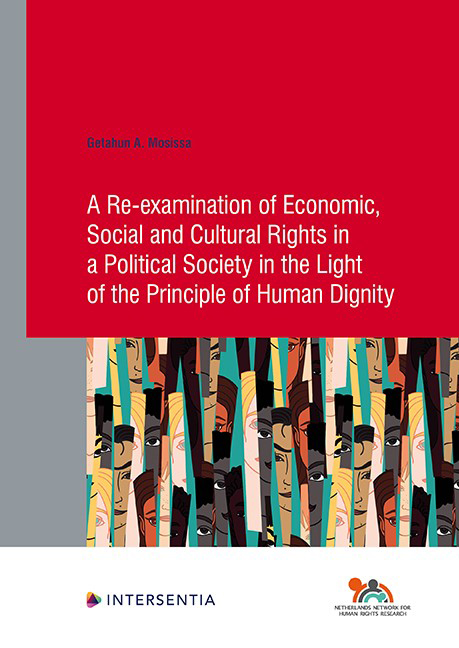Book contents
- Frontmatter
- Acknowledgments
- Dedication
- Contents
- Acronyms
- Chapter 1 General Introduction
- PART ONE THE CONCEPTIONS AND THEORIES OF HUMAN RIGHTS
- PART TWO THE LEGAL OBLIGATIONS OF THE STATE UNDER ESC RIGHTS IN THE LIGHT OF INTERNATIONAL ESC RIGHTS JURISPRUDENCE
- Bibliography
- Samenvatting
- Curriculum Vitae
- Human Rights Research Series
Chapter 5 - Participation
Published online by Cambridge University Press: 25 May 2021
- Frontmatter
- Acknowledgments
- Dedication
- Contents
- Acronyms
- Chapter 1 General Introduction
- PART ONE THE CONCEPTIONS AND THEORIES OF HUMAN RIGHTS
- PART TWO THE LEGAL OBLIGATIONS OF THE STATE UNDER ESC RIGHTS IN THE LIGHT OF INTERNATIONAL ESC RIGHTS JURISPRUDENCE
- Bibliography
- Samenvatting
- Curriculum Vitae
- Human Rights Research Series
Summary
INTRODUCTION
This Chapter discusses the right to participation as one of the procedural dimensions of the State's obligation to ensure the inherent material conditions of life guaranteed through ESC rights regime. To this end, it examines how the right to participation has been recognised and approached in international ESC rights case law and its specific significance in ensuring the substantive ESC rights required to live a dignified human life. It will be seen that guaranteeing this right is regarded as a critical element of the State's obligation to realise ESC rights both generally and for the vulnerable members of the society such as minorities, women, children, indigenous peoples and persons with disabilities. In particular, this Chapter will show that the right to participation is indispensable in reaffirming the equal and inherent dignity of all vulnerable persons. To this end, it will focus on those major international ESC rights cases in which the right to participation (in the sense described below) is directly or indirectly involved, and on other soft laws available especially in the practices of UN human rights bodies.
THE CONCEPTION OF PARTICIPATION
Traditionally the right to participation was considered as falling under the category of civil and political rights; even then the focus has been on the narrow notion of participation in the electoral process. However, it will be seen below that the right to participation480 not only constitutes an integral element of ESC rights enshrined in various international human rights instruments but also a fundamental prerequisite for the effective realisation of ESC rights as well It is also regarded as one of the most important human rights establishing the indivisibility and interrelatedness of all human rights. It has been defended as one of the universal basic human rights and central human capability needs flowing from human dignity. The right to participation is essentially a procedural right but with fundamental substantive implications. It seeks to guarantee the right of everyone to take part and have a meaningful say in a decisionmaking process affecting one's rights or interests. As such, it does not directly concern itself with achieving a certain predefined outcome of a process much less it prejudges the specific content(s) of the outcome concerned. It rather concerns the manner and process of arriving at a certain outcome or decision.
- Type
- Chapter
- Information
- A Re-examination of Economic, Social and Cultural Rights in a Political Society in the Light of the Principle of Human Dignity , pp. 155 - 190Publisher: IntersentiaPrint publication year: 2020
- 1
- Cited by

